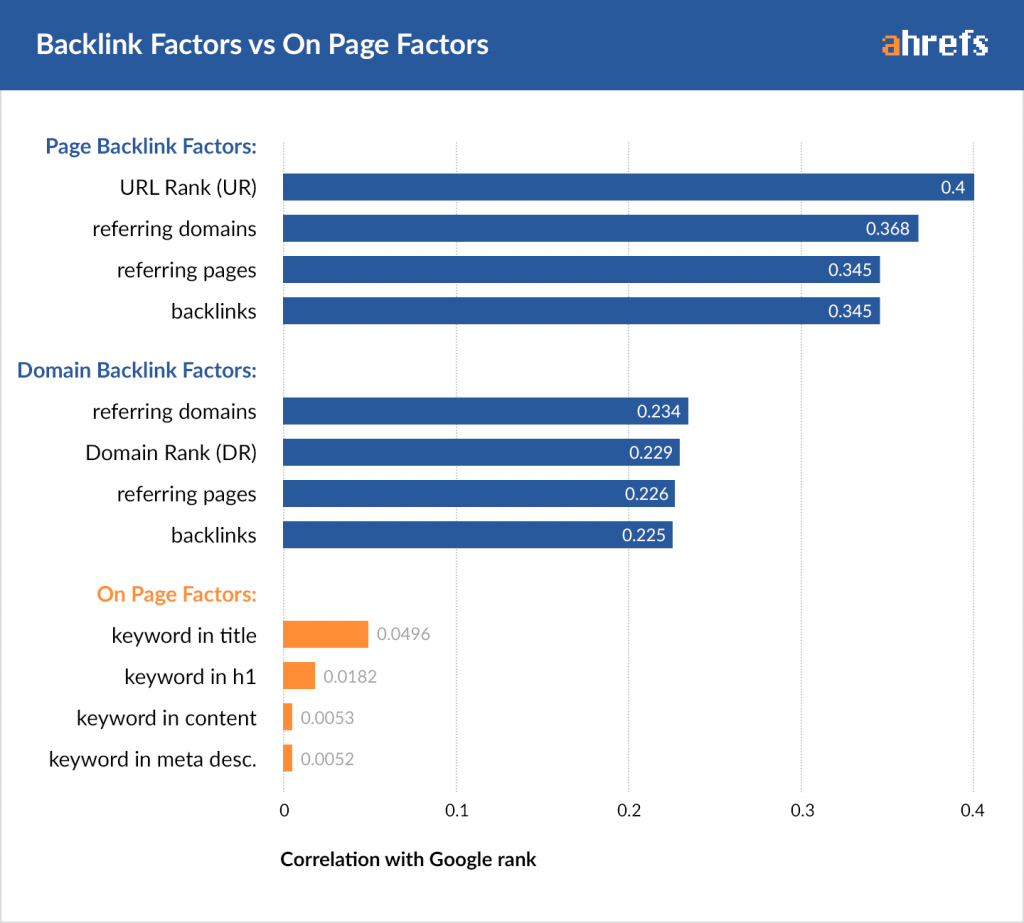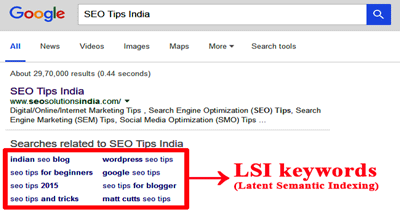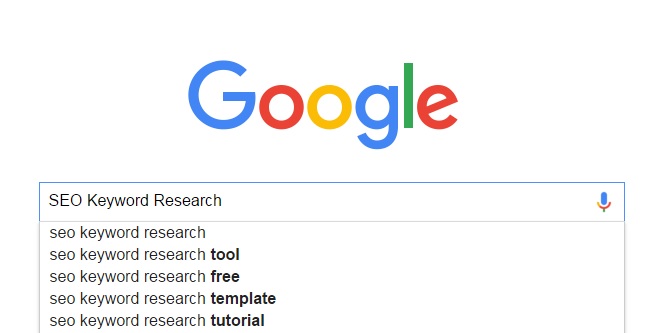SEO, or Search Engine Optimization, is a marketing strategy that is used to drive more traffic to your blog, product page, landing page, or wherever else you need to draw attention towards.
It’s a very simple technique that can be a complete game changer when used effectively.
Some of the benefits of using an SEO strategy include:
- Building up a loyal audience that will convert to sales
- Establishing trust between you and your potential customers
- Informing your customers of the products and services you’re offering
- Increasing awareness of your business or brand
While many people have tried implementing SEO.
Often they’re still left with nothing and are often frustrated.
Even worse is the fact that they give up half-way through, and as such, get none of the benefits that SEO provides.
However, in this article, I am going to show you some of the best SEO strategies.
From content
Ranking in Google Today
As you may or may not know, Google is one of the most popular search engines of all time.
Things like Google Now are even used to optimize a user’s search experience. As such, it’s important to rank highly on Google, alongside other search engines like it.
A lot of the times, people tend to notice how rapidly SEO changes, and admittedly, this is true. After all, I’ve documented all the updates made.
Even so, there are some elements that don’t change.
For instance, excellent links and great content are still the driving factors for getting traffic to your page.
Despite that, we want to help prepare you, and equip you to adapt to any change in SEO.
During the past few years, Google has focused on content, search terms, and other various topics.
By using Hummingbird, their algorithm, the engine itself is endeavoring to understand the different connections between individuals and groups, topics, niches, and even synonyms.
Remember, Google is used to help a user find what they’re looking for, and if Google can rate a website based on what the user is looking for, they’ll rank different websites based on what the user wants to learn.
This is the entire reason why just basic links in your article aren’t enough; content matters as well
Synonyms and LSI Keywords
Synonyms
For example, say you’re talking about SEO Manchester, that has synonyms and LSI keywords such as ‘SEO Company Manchester‘ and ‘SEO Services Manchester‘.
Synonyms can help you build up your keywords, and give you practice on how to help you use keyword phrases without being penalized.
In other words, Google is getting more and more sophisticated.
Keywords aren’t enough anymore; the intent, as well as the understanding, of the search, is important.
Here’s
In fact, it’s the reason why you don’t need to focus on using different keywords for different pages, but on building up content for each of the topics.
For example, say you’re using basic SEO techniques for SEO tips or SEO tips and tricks.
Google knows that you’re talking about the same thing, so you can just focus on creating a page, and through this, you’ll rank in a lot of variations.
This is why pages with more content rank better, and as such, there is a better chance that other people will see it.
Because of this, the best way to rank in Google search terms is to become an authority about the topic you’re blogging about.
It isn’t as intimidating as it sounds.
You just have to answer questions that your audience may have.
This includes addressing issues with a certain product, providing product descriptions, or even simply debating a topic you’re passionate about.
You can do this by building the depth of your article, as well as addressing the issues the product may have. But in order to do this, you’re going to have to get good links to your content.
Despite everything, links are still the single most determining factor in getting people to come to your page. However, quality is also an important factor in getting traffic to your write.
Because SEO is a long-term strategy, you should focus on using quality links in your site.
Misconceptions about SEO
Back in the early days of the internet, whenever people did SEO, they focused on two things: keywords and ranking.
For instance, if someone is selling a product, they’ll think that if they rank high enough, they’ll be able to make sales. If not, they can just forget about the extra revenue and try something else.
This is often a short-sighted mindset of SEO. In fact, this type of thinking isn’t remotely close as to how you can use SEO successfully.
The same thing can be said of links. If links are all that important, it’s going to be difficult for product pages to even rank at all.
Remember that SEO is a long-term strategy.
You need to keep consistently optimizing your articles so that you can keep your audience engaged, as well as attract new visitors to your site.
Using keywords, as well as other links, to get you to a better ranking are also another misconception, and while important, aren’t the only things you need. Not only this, but you can’t simply just stuff your article with keywords and links.
You also need to back those links and keywords up with excellent content creation.
For example, people who use basic keywords often try to direct customers to their product page.
Simply put, they’re used to find newer customers without any thought of how the product would work for the customer, or any questions or concerns the customer might have toward the product.
However, with these new SEO techniques, just using keywords and links aren’t enough anymore. Instead, it’s more about traffic rather than rankings, and topics, rather than keywords.
This, in fact, is the reason why certain topics are more popular to write about than others, like politics, beauty, and even health.
In other words, when you build up your content, not just by using keywords, but also quality links, you can put yourself in a position where people consider you to be an authority on your subject.
Not only that, but because you’re driving more traffic to your page, it’ll give you a chance to make that much more money.
So with this in mind, let’s dive right into some strategies you can use in order to drive traffic to your site.
SEO Techniques
Before You Start Your SEO Campaign
Before we begin, we need to do an audit to see if there are any issues with your site.
For example, if your articles have keywords and links, but have no great content, that is, of course, an issue.
One tool we like to use is the Google penalty checker. The Google penalty checker is a diagnostic tool that helps us understand just where the reduction in traffic is.
By using this tool, you can tell just which updates have affected you the most, which may signify a major flaw in your writing that you need to address and help you avoid further penalties.
Even so, other flaws may be harder to fix. Because of that, may even be even harder to recover traffic from.
If you have a site that has so many flaws to the point where the traffic is permanently damaged, perhaps it’s time for you to shut down that site. Your time can be better spent elsewhere.
However, despite the many variables that often affect traffic, you can always depend on the following these strategies.
-
Define Your Audience
One of the best ways to help you choose your topics is to write for a target niche. In order to make a profit from your blog or product, you need to target people who will benefit from your product or service.
After all, just blogging to people who don’t need your services is just a waste of time and your writing. For instance, you wouldn’t market a book about writing to someone who has absolutely no interest in the subject.
By targeting a specific audience, not only will you be able to better establish trust between you and your customers, but you’ll also be able to cultivate a community around your writing, and even better improve people’s lives with your product. In this sense, you really are giving back to your community.
Let’s take this article for example. Many people want the latest SEO strategies, so in order to meet their demands, we write an article containing these SEO strategies. However, when people read these strategies, they still may not understand keywords.
As such, we write another article pertaining to those keywords. Then they have more questions on building links, so of course, we address those issues too. This, of course, goes on and on and on.
Though this strategy may seem a bit redundant at first. However, by doing this, we are able to establish a working relationship between us and our customers.
After all, it’s important to listen to the customer, and the customers are always right. Our business, as well as your own, won’t be able to work, at least without an understanding of what the customer wants.
-
Find the Right Keywords
Researching keywords is
-Keywords related to your topic
-Keywords not related to your topic
In order to utilize keywords in your SEO strategy, you can use tools like the ones we have in order to find keywords that rank highly in Google search.
By optimizing quality links related to your topic or product, you can thus increase the traffic to your site rapidly. Once you do, compare your keywords to the keywords that aren’t related to your topic, and then analyze the traffic between the two.
This is called
Competitive gap analysis is a technique where you search for your competitor’s websites, where you’ll find indirect competitors, or businesses who sell the same product or service as you, and direct competitors, or businesses who don’t sell the same product or service as you.
When you have these competitors, write down a list of the keywords associated with them, then eliminate the ones you rank in. Once you do, you’ll have a list of different target keywords, and as such, you can build up content related to your business.
-
Onpage SEO Optimization
Make sure you create content that utilizes the keywords you’ve found, as well as many aspects of the topic as you can. You can do this by using your title, descriptions, and even images.
The purpose of this strategy is about content creation that helps answer your customer’s questions. Because of this, content that contains approximately 1000 words or more rank better.
You also have a list of keywords from the competitive analysis you made. Because of this, you’re able to develop content just from these keywords, and make your content that much more specific.
Through this, you’re able to find your target niche and steer them to your website. This strategy also works with old articles and blog posts.
-
Link Building
However, even after you use these keywords and create the appropriate content for your site, you’re going to need links to help capture people’s attention.
After all, your product and service
What’s more, link building is incredibly important for increasing your rank.
Not only this, but it can also help other people join in on the discussion. But in order to utilize this strategy, you’re going to have to stop underestimating this altogether.
As such, I suggest that you:
Start with Branding/Diversity
Because the biggest issue is
–Social media: You can use social media sites, such as Facebook, Twitter, and
This not only will give you a whole range of links you can use to diversify your profile. You can do this by creating quality content on your site, then linking back to them with your social media profile.
–Press Release: You can also spread
It also helps you so in that it gives you a variety of different anchor texts and no-follow links so that you can build up more follow-links later.
Get Content Relevant Links
While it may seem a bit repetition, our message is the same: get the in content relevant links surrounding your product so that you’ll rank well in searches, Google or otherwise.
You can do this by using
Once you do this and build up a loyal follower base, add
Do not repeat the same anchor twice;
However, link building often takes time, and like any other good SEO strategy, can only be useful as long as you’re patient.
There are other times, of course, in which, while an article has a good number of links, that just
If this is the case, try to get links from trusted sources.
The more of these sources you use, the better you’ll rank in terms of optimization, and the more trust the search engines will have in
Continue building up these types of links. Treat this as an ongoing project that you can use to further promote the growth of your business.
One of the biggest problems we see in terms of linking is the over-optimization of anchor text.
People tend to overthink anchor text, and as a result, end up worrying too much about it.
Our advice is to stop.
Just go for naked URLs and brand names, to build up that authority.
Guest Posting
Again, like other forms of link building, people tend to underestimate this strategy.
However, by guest posting, not only will you be able to bring in more traffic from different sources, but you’ll also be able to showcase your authority on a specific topic, and engage in your community just as well as in your social media profiles.
It will also help you nourish interest and build up a demand for your business.
To guest post
They may either have this on their site, or you can contact them for more information.
Make a pitch to them about a blog post.
Spend time writing this article; build it up as you would for an article on your site.
By doing this, not only will you be able to establish trust, but you’ll also be able to link back to your own website.
Conclusion
SEO is often an overly complicated technique that people tend to either
There are many different misconceptions for SEO as well, from stuffing articles with keywords and links without considering content
Even so, we’ve given you many tips on how to help you optimize your site, not only so that you’ll be able to get this traffic, but you’ll also be able to potentially drive up your income and create communities surrounding your product.
We can help support your business through SEO, and with the right time and patience, you’ll be able to master SEO techniques that will help your business grow.





